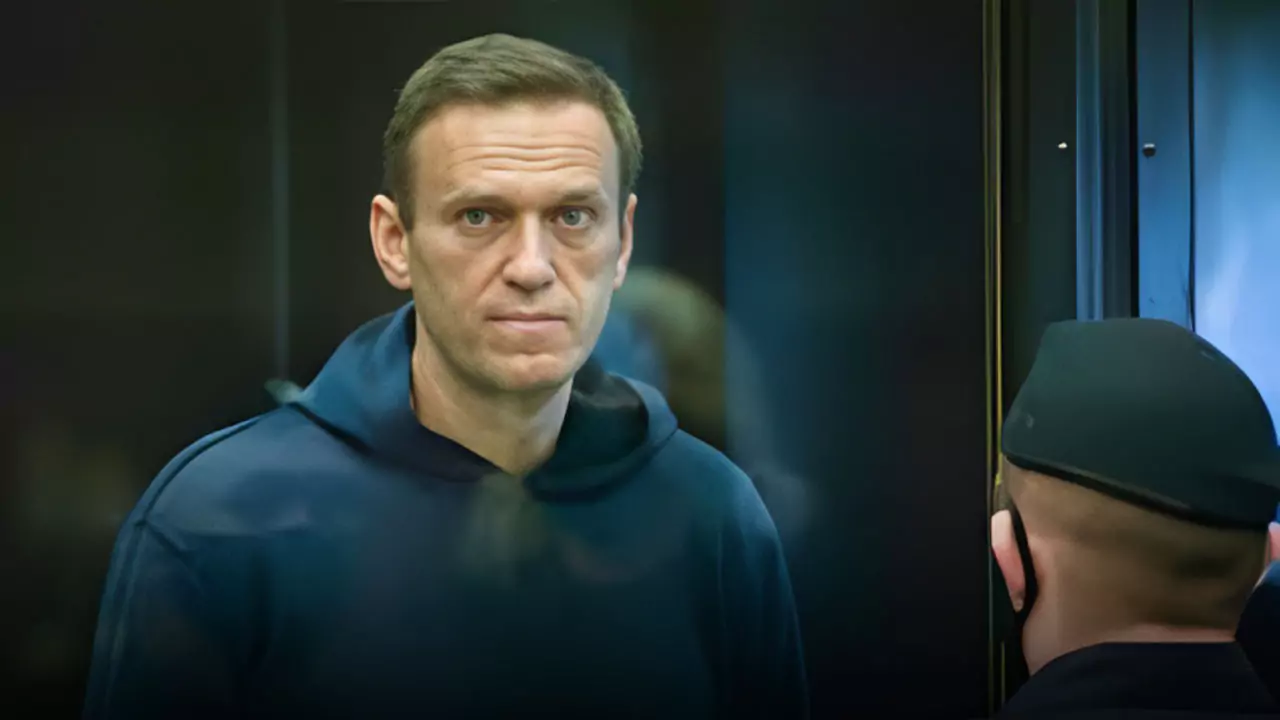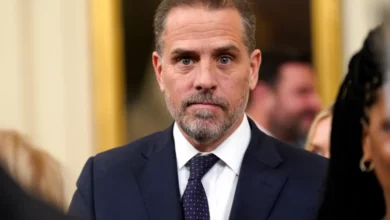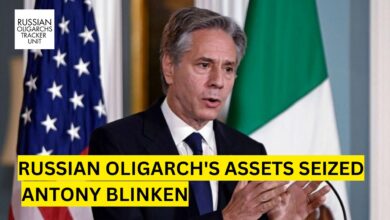Alexei Navalny Casts Ominous Shadow Over Russian Politics

A well-known figure in Russian opposition politics, Alexei Navalny has persistently questioned President Vladimir Putin’s administration by probing Putin’s associates and financial transactions. Because of his commitment to openness and responsibility, Navalny has been imprisoned several times.
Surprisingly, Navalny survived a nerve agent poisoning, which he openly blames on the Kremlin. Diplomatic ties between Russia and Western countries were further strained when he sought medical attention in Germany after the attack.
After being returned to Russia and serving a two-and-a-half-year sentence in a penal colony, Navalny’s circumstances took an enigmatic turn when he vanished from prison, raising concerns about his safety and well-being. His disappearance’s circumstances are still unknown, which begs the question of possible state intervention or foul play.
With calls for Navalny’s release and worries about the erosion of democratic values, his situation has drawn attention from around the world and highlights the difficulties faced by political dissidents in russia.
The circumstances surrounding Navalny’s disappearance give the current international conversation about human rights abuses and political repression in the Russian Federation a sense of urgency.
RECENT UPDATES ON ALEXEI NAVALNY
According to his allies on Monday, Russian opposition leader Alexei Navalny has left the prison colony where he had been detained since the middle of the previous year. His current whereabouts are still unknown. His transfer to a “special regime” colony—the harshest classification in Russia’s prison system—is anticipated to follow the relocation.
This comes after he was sentenced in August to an extra 19 years in prison, on top of the 11 and a half years he was already serving. The action shows that the Russian government is intensifying its crackdown on Navalny, who is well-known for his anti-corruption activism, as it continues to silence critics.
His safety has become a greater concern, and the secrecy surrounding his whereabouts has increased, garnering attention from around the world and prompting inquiries about the state.
The lawyer for Russian opposition leader Navalny, Kira Yarmysh, said that when Navalny’s lawyer arrived outside the IK-6 facility in Melekhovo, 235 km (145 miles) east of Moscow, staff told him he was no longer a prisoner.

Because Navalny has not disclosed his current whereabouts, the uncertainty surrounding his situation is heightened by his abrupt relocation. This event confirms the rumored move of the individual to a colony under stricter “special regime” conditions.
Concerns concerning Navalny’s safety are raised by the opaqueness of his case, which also draws attention to the larger difficulties faced by dissident voices in Russian politics. Transparency and adherence to human rights are being called for with increased international attention.
Alexei Navalny, the leader of the Russian opposition, vanished without explanation, coinciding with the start of the presidential election campaign. Vladimir Putin declared his intention to run for a second six-year term. The fact that Navalny has disappeared from the public eye at this crucial political moment adds to worries about possible political motivations for his move.
The circumstances surrounding Putin’s bid for reelection highlight the difficulties opposition leaders in Russia face and further cloud the political landscape of the nation. The circumstances surrounding Navalny’s disappearance raise concerns about the country’s overall political freedoms as well as the fairness of the electoral process.
Alexei Navalny, the head of the Russian opposition, vanished, and the Kremlin has not responded right away. The goal of President Putin’s and his spokeswoman’s constant avoidance of calling attention to Navalny by name is to minimize his political impact while maintaining that he is treated like any other prisoner. This tactic works to lessen Navalny’s influence and divert attention from other countries.
The absence of an official statement regarding Navalny’s disappearance feeds international anxiety about the treatment of political dissidents in Russia and raises questions about transparency and the Kremlin’s handling of the situation.
In Russia’s huge territory, prisoner transport by rail frequently takes weeks, during which time relatives’ whereabouts and conditions are unknown to family members until they arrive at their destination. Even though he is in jail, Alexei Navalny has regularly used his attorneys to publicly criticize the Kremlin on social media.
From a prison cell, Navalny discusses his experiences and denounces President Putin’s policies, emphasizing the situation in Ukraine. Navalny’s ability to express his opinions highlights the shortcomings of the Russian penal system, and even in the face of the logistical difficulties associated with long-distance prisoner transportation, his criticisms act as a constant voice questioning the official narrative.
Internationally acclaimed for his voluntary return to Russia in 2021, well-known opposition leader Alexei Navalny won respect for his bravery in the face of hardship. After receiving treatment in Germany for nerve agent poisoning in Siberia—a condition that was verified by Western laboratories—Navancly was arrested by Russian authorities as soon as he returned.
Navalny is adamant that the allegations against him—fraud, contempt of court, and alleged “extremist” activities—are unfounded and a plot to silence him when it comes to criticizing Russian President Vladimir Putin. Global concern for the opposition leader’s safety and the general state of political freedoms in Russia has been aroused by his tenacity and refusal to be silenced.
On the other hand, Russian authorities present a different image. Navalny and his allies are called extremists, charged with keeping ties to intelligence services in the West, and allegedly plotting to topple the government. Putin has sent warnings to the West over alleged meddling and called any intervention in Russia’s domestic affairs an act of aggression.

The fact that Navalny was arrested when he returned to Russia highlights the difficulties that Russian dissident voices face as well as the extent that the government will go to stifle opposition. The situation of the opposition leader has come to represent more general problems with human rights, political persecution, and the deterioration of democratic principles in Russia.
As Navalny faces an array of charges, each seemingly designed to quash his influence, the international community watches closely. The Kremlin’s portrayal of Navalny as an extremist linked to foreign entities adds a layer of complexity to the already strained relations between Russia and the West. Navalny’s narrative unfolds against a backdrop of geopolitical tensions, emphasizing the high stakes involved in the clash between dissent and authority in contemporary Russian politics.








